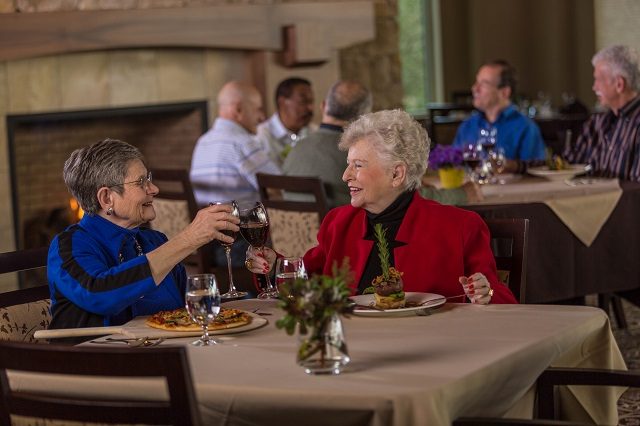An older lesbian may be medicated, injured, or in a hospital trying to figure out how to manage things once she gets home.
See Parts One and Two of LLL’s interview with Rebecca Miller.
What about the housing needs of disabled LLLs?
Caregiving is the number one priority. If disabled women are living at home, many times it’s the family [or friends] that are delivering the care. If the disabled woman has children, she might have that benefit [of having a child provide care in the home], but if she’s opted not to have children, she’ll need to rely more on her networks, her communities.
Some of it depends on whether the elderly person has become disabled later in life, such as due to a medical condition or fall, versus someone who had lived with disability all of her life. Someone who has been disabled all of her life most likely has care systems in place. She’ll likely be used to relying on others and have adapted her home and lifestyle to accommodate her physical needs.
On the other hand, a formerly independent woman who suddenly finds herself unable to use the toilet, dress, bathe, eat, or otherwise care for herself without assistance is going to be piecing it together. She may be medicated, injured, or in a hospital trying to figure out how to manage things once she gets home.
Medicaid dollars are available from the state and distributed through county programs that help pay for caregivers to help with these activities of daily living. These programs pay for a limited number of hours based on an assessment of the individual in their home. But many people find their resources cannot cover the additional hours required to fill in where the county leaves off. The county does not pay for a caregiver to run errands needed to maintain a life such as going grocery shopping, mowing the lawn, medication management, bill paying, feeding of pets, etc.
Of course, everyone has to deal with having a house that someone with a mobility device can visit – is there a staircase or a ramp, or is there a no-barrier entrance? Are the doorways wide enough for a wheelchair? Can someone in a chair use the restroom and the shower? If you’re in a mobility device, can you reach into the freezer, use the stove and the sinks? Can you see in the mirror?
Disabled or not, people living in some rural areas have trouble accessing medical care. Can you get to a doctor when you need one, or talk to a doctor by phone? Also, there are a lot of accidents in rural areas, things that we don’t think about so much in cities, such as farm accidents. In rural areas, people are more likely to hurt themselves doing more active things with major equipment, such as snowmobiles, chain saws, farm equipment – and they are further from clinics or hospitals, too.
